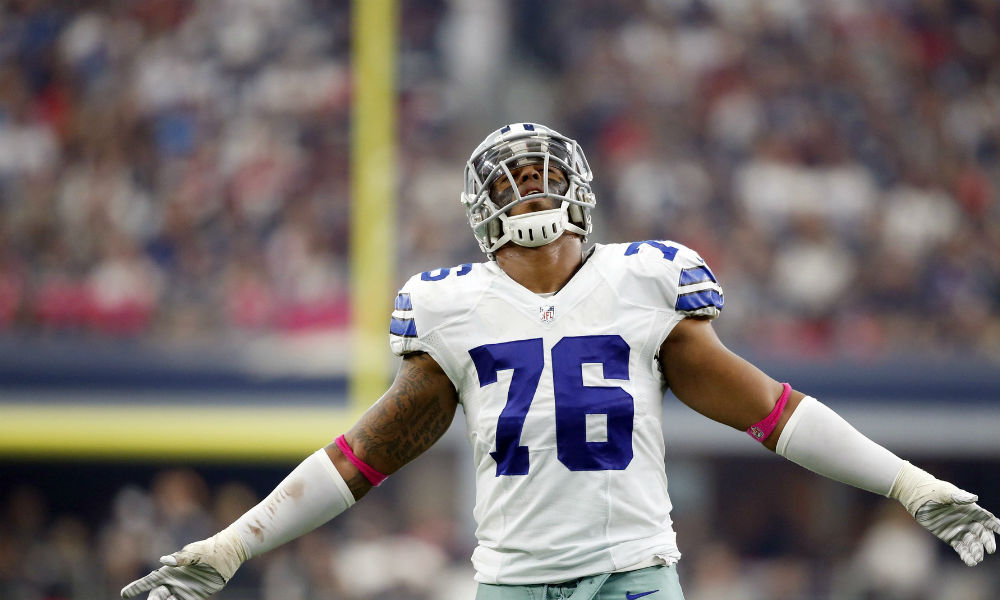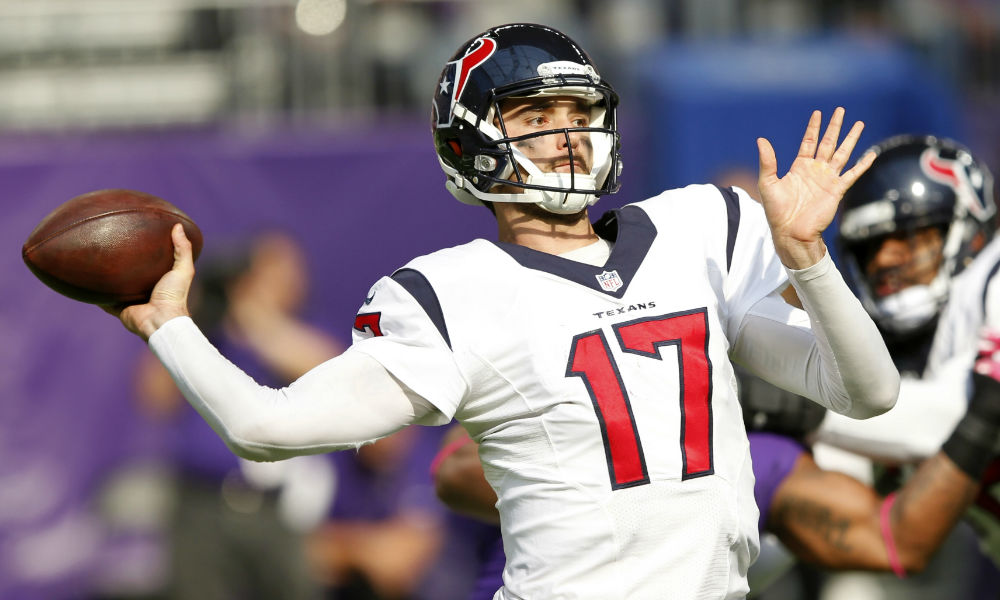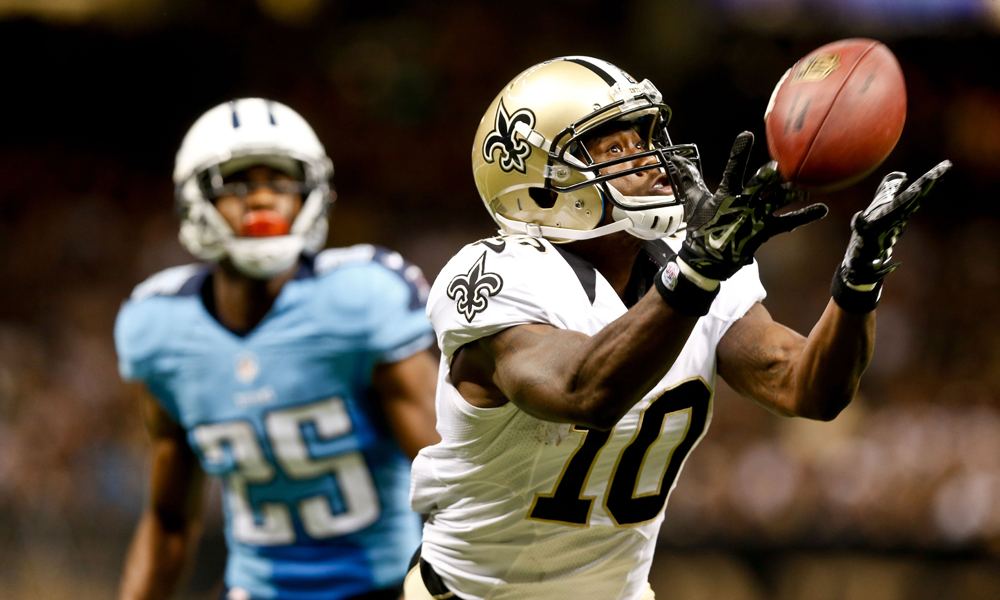News
Veteran Quarterbacks Can Learn from Peyton Manning’s Super Bowl
Manning’s Super Bowl performance proves a star quarterback doesn’t have to be the hero to win big.
It’s often said that football is a young man’s game, but over the last two years, at least at the quarterback position, experience has gotten the best of youth in the biggest game of the season.
The performances of Peyton Manning and Tom Brady in the last two Super Bowls may serve as blueprints for other veteran quarterbacks to follow and give them a chance to win the big one down the road.
What Brady and Manning have accomplished over the last two years is a good lesson for guys like Peyton’s brother Eli Manning, Drew Brees, Ben Roethlisberger, Joe Flacco and even Aaron Rodgers. All five have won at least one Super Bowl and are seeking to add another title before they ride off into the sunset like Manning. It’s also a lesson to be learned by guys who haven’t gotten there before and are in danger of that becoming their legacy like Carson Palmer, Tony Romo and Philip Rivers.
All eight of those quarterbacks have carried their teams to varying degrees of regular season and postseason success over the past several years, just as both Manning and Brady have. But sometimes that’s not what your team needs. Manning proved as much last Sunday.
The seven-time All-Pro didn’t carry the Broncos by any means in their Super Bowl 50 win last Sunday. His 13-of-23 line with 143 passing yards, no touchdowns and an interception wasn’t the deciding factor in the victory. However, the 39-year-old Manning did something vitally important to Denver’s cause in the game: he limited mistakes. That’s something his opponent, Carolina’s 26-year-old quarterback Cam Newton, struggled to do. It’s also something Manning was terrible at just a few months ago.
Once considered one of the league’s most prolific passers, the 18-year veteran got off to a horrible start during the 2015 season by trying to do what he was once more than capable of: outpass his opponents. The league’s all-time leading passer threw 17 interceptions in nine weeks and many, the Broncos included, were ready to cut the cord on his career. An injury suffered during that horrid stretch sidelined him for six weeks and by the time he got healthy, he’d lost his starting job to his protege, 25-year-old Brock Osweiler.
But when Osweiler faltered in the final week of the regular season, Manning seized the opportunity to take his job back by altering his approach and simply playing mistake-free football. In fact, the only interception he threw from the time he entered that Week 17 game against San Diego through the Super Bowl was his ill-advised pass into the arms of Kony Ealy this past Sunday.
Because he limited his mistakes, Manning didn’t have to put up gaudy numbers to win games. He instead took what opposing defenses gave him to work with, a lot of shorter throws in tandem with his running game. He let his team’s top-ranked defense do the heavy lifting on the other end, which was made easier because he wasn’t putting the defense in position to fail with turnovers and short fields.
A similar approach has garnered some Super Bowl winning quarterbacks criticism in the past, and years from now when we rank the quarterback performances in the Super Bowl, Manning’s play in Super Bowl 50 might be alongside that of Trent Dilfer in Super Bowl XXXV among the worst ever.
However, Manning actually joined a fairly impressive list of signal callers who won a Super Bowl without throwing a TD pass. Dilfer actually isn’t on that list but Joe Namath, Bob Greise, Jim McMahon, Troy Aikman, John Elway and Ben Roethlisberger are. Like several of those players, Manning doesn’t have anything left to prove as a passer. If he’s not the most prolific quarterback in the history of the game, he’s on the short list. And now he has two Super Bowl rings instead of just the one to show for his long career, validating his legacy once more.
Tom Brady did something similar a year earlier, though in less underwhelming fashion, to say the least. In Super Bowl XLIX, Brady completed 37-of-50 passes for four touchdowns against just two interceptions in New England’s heart-stopping 28-24 victory over the Seattle Seahawks.
In that game, the then 37-year-old quarterback picked apart the Seattle defense in a way we hadn’t seen anyone do it over the last few years. Sure, Brady took some more risks than Manning and made some miscues, but the New England game plan was sound and took advantage of their quarterback’s strengths, and to his credit he followed it to the letter, minimizing mistakes that might cost his team more.
That’s something that the Seahawks and quarterback Russell Wilson failed to do in the most critical moment of the game, choosing to try to pass their way to a win from the one-yard-line. The play call itself was a bad one, especially for a team with Marshawn Lynch in their backfield. However, Wilson made it worse by trying to fit the ball in a tight window and paid dearly for it. It was a youthful mistake from the then 26-year-old quarterback, who so often has played with the poise of a veteran. And it benefited Brady, who had to lean on his defense to finish the game despite his impressive numbers all night. Sometimes that’s just what you have to do. You can’t always be the hero, but you can always avoid being the goat. Super Bowl XLIX proved that to Brady.
He can also learn something from what Manning did this season. Brady doesn’t have the physical limitations that Peyton has over the past several years, but the Patriots signal caller is getting up there in age — he’ll be 39 himself when the 2016 season begins — and is likely at some point to have to alter his game if he hopes to add a fifth ring to his résumé. With that in mind, he can certainly draw from the way Manning adapted down the stretch for the betterment of his team. Though they’re much younger, so too can the last two Super Bowl losers, Wilson and Newton. After all, it was just three Super Bowls past that Manning was on the wrong end of a championship defeat.
But it’s perhaps a most important lesson for guys like Romo, Palmer, Brees, Roethlisberger and Eli Manning. Those five, along with Brady, are among a group 12 sure-fire starters in 2016 who will be over the age of 31 by the time the season kicks off. Romo and Brees will both be on the wrong side of 35 by that time. Time is running out for these quarterbacks to stamp their legacy once, or once more. But if they follow the Brady and Manning models, they too may be able to overcome the NFL’s youth movement at quarterback and put a ring on it before it’s too late.
News
Broncos holding their breath on Derek Wolfe
Source: Mike Florio of ProFootballTalk
Powered by WPeMatico
News
Buccaneers admit mistake, boot Aguayo
Source: Mike Florio of ProFootballTalk
Powered by WPeMatico
News
Did Bucs put too much pressure on Aguayo?
Source: Mike Florio of ProFootballTalk
Powered by WPeMatico




